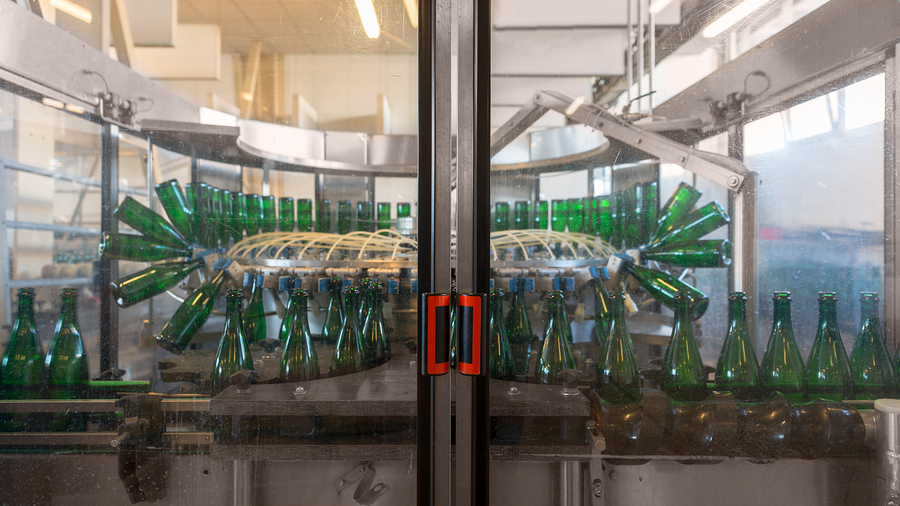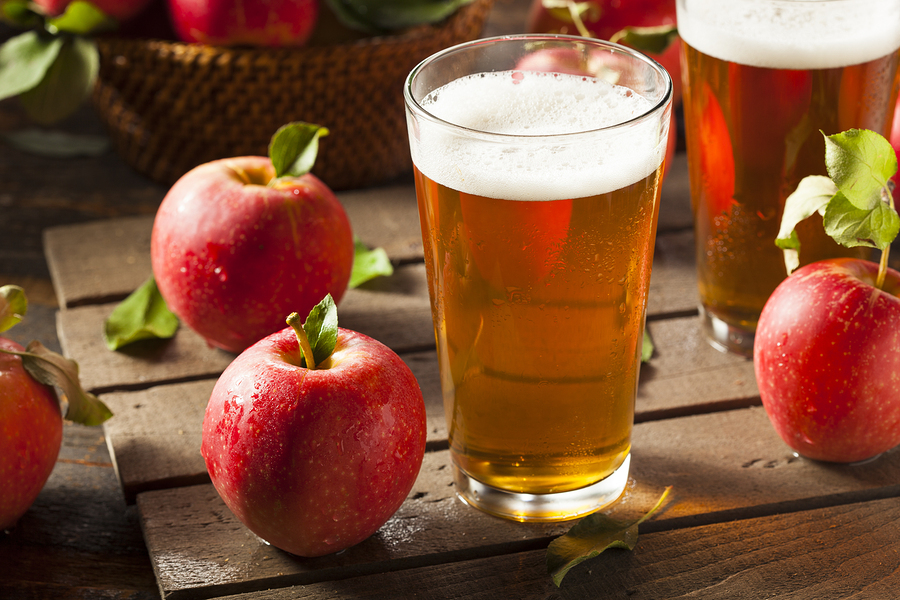One aspect of craft beer that people notice but don't think about is the labeling. Brewers, ignore this aspect of the presentation of your product at your own risk because while people may not think about the labels much, they absolutely base their purchase decision on what is on the label. But if you are new to the business, how do you know what the best label solution is for your business? The stage and barrel production of your business can determine how you choose to dress your bottle. This article examines types of label printing and the set up process and costs associated with labeling your libations.

|
© Deposit Photos |
Outsourced vs. In-house Printing
Outsourced: If you outsource your printing you have to options to consider to get a professionally looking label on your bottles.
In-house Printing: Do-it-yourself printing that you manage from your office or your brewery.
Let's examine all options.
Full Service Printing Vendors
Many full service printing vendors have been servicing the brewing industry and other food and beverage manufacturers for years, which means the companies that print the labels have a considerable amount of experience and can help you achieve the desired outcome needed.
Typically they will offer labeling solutions, printed from a traditional press or digital machine in these varieties:
- Cut and Stack Labels (Used mostly by large scale breweries.)
- Pressure Sensitive Labels (Used by small to mid-size breweries.)
- Digital Labels (Can be good for any size brewery printing anywhere from 500-20,000 labels at a time)
It is important to ask about what machines your full service printing vendor uses so you can be confident in the end result. Some commonly used, reputable, and high-output machines are Heidelberg, Nilpeter and Omet. The digital machines that are used most often are HP, Xeitron and Domino.
"Do-It-For-Me" Online Vendors
If you aren't quite ready for a completely custom cut and produced label, but do want a professional and polished look, there are plenty of online vendors that take orders based on pre-determined label sizes. You can simply select your size, paper type and finish, quantity and turnaround time and you will get an instant quote. A simple Google search for "online beer labels" will help you identify some vendors. A few that show up on the first page and appear to offer great solutions are:
In-house Printing
To print your labels yourself, all that is required is an image file (your designer will provide you with this) and digital printer. Digital printers for home usage can include inkjet and laser printers. You probably already have one at home or at the office, so getting started with in-house printing is easy. Caution - you do not need to invest in a digital machine like the machines I previously mentioned that full service printing companies use. If you're considering that, just work with the pros and let them do what they do best. If you do work with a full service printer and want their recommendation on a machine that is a step up from an inkjet or laser printer, ask your vendor for their input. They may tell you that a machine like a Prism is a good option for the amount of labels you are printing and the quality you want to achieve. And, it won't come with a price tag like a digital HP mentioned above.
The Setup
Each of the above solutions offer different advantages, which vary depending on how many labels you need, how likely it is your design will change, how the labels will be applied and how quickly you need the labels.
Full Service Printing Vendors: Takes more time to set up as the plates have to be prepared and the physical printer set up takes much longer. If you have no plans to make changes your label any time soon, this is a much better way of having a large quantities of labels printed at the same time. Labels from full service vendors have a professional look and are completely customizable to desired shape and paper texture. (If you opt for digital printing, set up times tend to be much shorter so keep that in mind. But digital printing is not always less expensive. Talk to your vendor about the best options for your desired outcome.)
Questions you may hear from a full service vendor gearing up to help you with your label order can include:
- What is the status of the artwork?
- Does the artwork needs any edits? If so, who will be making those edits? (Your designer or the printing company?
- Does the label need to be designed from the ground up?
- How many labels do you need right now and how many do you need down the road?
- How is the label being applied?
- By a co-packer? If so what type of equipment do they have? If by the brewery, what type of equipment does the brewery have?
- Will it be applied hot filled or cold filled?
- Is it going to be applied wet or dry?
- Is it going to be applied to the bottle before it's filled or after it's filled?
- How many colors are on the label?
- What type of finish do you want the label to have?
Do-It-For-Me: If you opt for working with a vendor like this you will want to have your artwork files ready to upload at the time you place your order. Some Do-It-For-Me vendors are willing to edit artwork files and others aren't, so be sure to do your homework. You'll get a proof before the labels print and then, viola, the labels will arrive in the mail. There are also Do-It-For-Me vendors that will allow you to design your label using their software and designs. So if you haven't found a kick-butt designer to help you create the masterpiece you want, Do-It-For-Me designs could be just what you need.
In-house: Takes as much time to set up as it takes you to load your file into the computer and put the paper in the printer. If you only need a small order of labels, this is a much better method of printing, especially if you are just getting started. If you select specialty paper for your labels, they can have a similar texture as labels done with a full service printer, but on a budget. You just won't be able to customize the shape of your label like you would with a full service printer and would likely buy labels in a package of about 200 or so.
The Cost
Costs vary depending on the option you choose. Certainly, depending upon the stage/size of your brewery, costs can be a big motivator. But, be careful, cheaper does not always mean it's the best decision to make when it comes to presenting your packaged product to the consumer.
Full Service Printing Vendors: Will be the most costly printing option as you get set up, and you will usually have to commit to a minimum order size (5,000 labels or more) which could vary depending on the vendor that you utilize. The best bet is to have an open conversation with your printing vendor and discuss all related fees that accompany the cost per label. Ask the vendor about the differences in prices based on the type of paper you use, the shape of the label, plate fees, die fees, design fees and any other set up fees. In the end, the more labels you need printed, the better the cost per label. And, in the long run, after your set up costs have been paid for, the cost per label will be much lower than Do-It-For-Me label option. When it comes to digital printing, there may be less of an expense in set up fees (no die fees are required when lasers do the work) but the cost per label might be higher than traditionally printed labels. Be sure to weigh both options and discuss with your vendor. There is no one-size-fits-all solution for every producer.
Do-It-For-Me: For the short term, this option is relatively cost efficient. Because there are no die fees or set up fees, it makes entering into the custom label space, at any quantity, no-nonsense and affordable for any brewery at any size. Labels can range from $0.25 each, up to over $1.00 each. If you are printing just a couple hundred this could be a good solution for you, but in the long run when larger quantities are needed, this option can end up being 2x-10x the cost of Cut and Stack or Pressure Sensitive Labels through your full service printer.
In-house: Is something that you can do yourself, which is especially helpful if you are a small brewery that sells product from your taproom. Any desktop ink-jet printer will work just fine with the right type of paper (watch out for runny ink, that would be a buzz-kill.) Of course, there is no minimum on how much you can print yourself, so the price of the printer (if you have one already, bonus,) ink, and paper are going to be your biggest costs. Your time is valuable too, so do consider the value of the time you spend printing and applying labels.
As with anything, consider your audience, the scale of your production, and the impression you want to make on the consumer. Labels are an extremely important finishing touch on any beverage, and it is something that every brewery should spend time considering because it impacts the potential of each bottle to be sold. Despite what people are told from a young age about how you should not judge a book by a cover, it is one of the things that attracts buyers' attention to your bottle. While there are a number of ways to save, labels are not something that you can afford to skimp on. The more creative and professional your label looks, the better your sales will be. That does not mean you want to spend more on printing the labels than you do on the brew, but it is the best way to get attention.




.png?width=2254&height=703&name=longitude_logo_final_transparent%20(1).png)
Share This Post